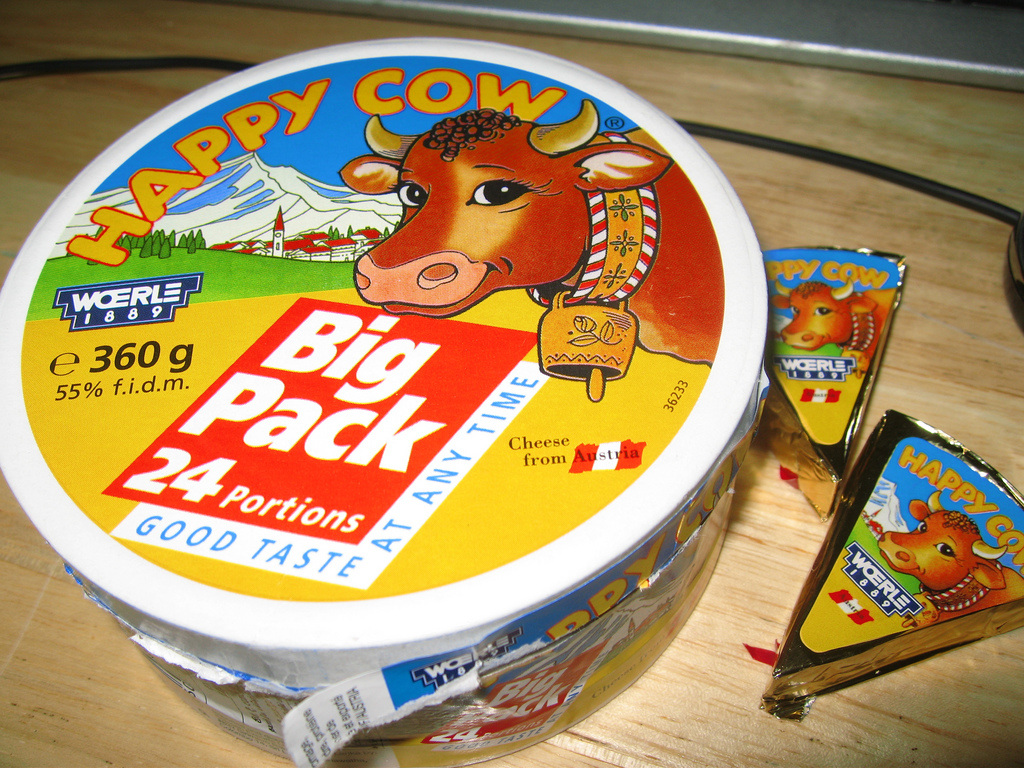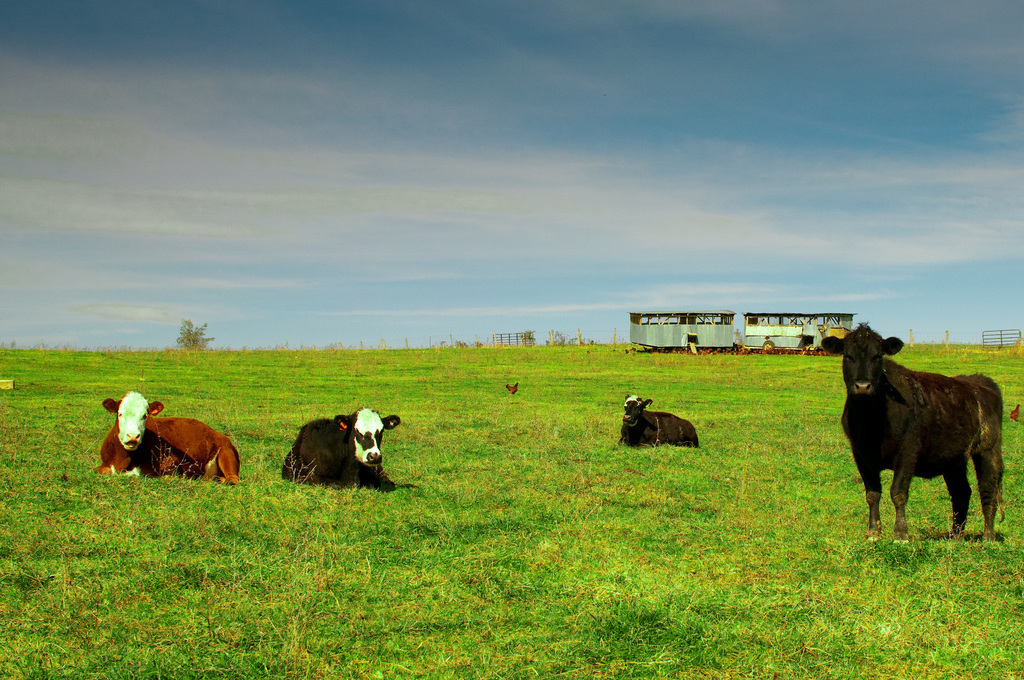I'm sure if you've ever been to a grocery store, you've seen some variation of "the happy cow." Maybe it was in the form of a smiling cartoon cow on a milk carton or package of cheese, or cows grazing peacefully in a meadow on the label of a plastic-wrapped roast. Whichever form it was in, I'm sure you know what I'm talking about. Because although we humans don't like to think too deeply about the fact that the steak we're cutting into was not so long ago a live animal, when we do think about it, we like to think of the animals we eat as happy. We want to believe that they had happy cow/chicken/pig lives, doing what cows/chickens/pigs like to do, before they became dinner on our plates.
Sadly, this is rarely (VERY rarely) the case in reality.... But we don't dig too deeply. For most of us, the happy cow on the box is enough "proof" to assuage our guilty conscience - although, as I often remind people, just because you refuse to know it's happening doesn't mean it isn't!
| To tell the truth, if you will take a moment to look a little further, and not turn away this time, the majority of animals in the industrial food system are treated pretty horribly. Not necessarily abused in a malicious sense (although that almost certainly happens sometimes), but certainly not living out their natural desires. Most are kept in tiny cages or pens, without access to the outdoors - contrary to what that pretty, grassy pasture looks like on the milk carton. Some (cattle in particular) are basically force-fed things they were never meant to eat (i.e. corn), which makes them sick, which makes them require lots of antibiotics and other drugs to keep them alive long enough to slaughter. |
And if you think eating organic solves the problem, it doesn't - at least not necessarily. Many animals raised in the industrial organic manner are kept in fairly similar conditions - the difference being, they may have to be allowed a bit more room, or fed slightly differently, in order to keep them from getting sick and needing antibiotics or other drugs which can't legally be fed to organically raised animals. But their lives are fairly similar to their conventionally raised counterparts in most ways. Lack of light, lack of space, lack of clean air, lack of healthy food (for which the animal is well suited), the list goes on. The life of an industrial food animal, organic or not, is a life of lack - not one of fulfillment or happiness.
So, if we want to eat meat, and we now know too much to turn away, what can we do? Where can we find "the happy cow", or does such a thing even exist?
I can tell you that it does. I have seen it, lived it, and eaten it! In The Omnivore's Dilemma, Pollan also describes an example of it, with the Polyface Farms model. Happy cows (and chickens, and pigs, and you name it) are out there, living their happy animal lives, and while they may not know that they are being raised to be dinner someday, they also don't care, as they get to live out their own natures as long as they are allowed - and that's really all any animal (or human when you think about it) can ask for.
| I grew up on a farm, and we did eat some of our animals, and for the most part, their lives as long as they lasted were good and happy. They roamed the fields and woods eating grass and brush all day, were penned safe and warm at night, fed, petted, milked, and generally treated with courtesy, respect, and kindness. We were just a small family farm, and raised meat only for our own purposes, but larger farms like Polyface provide an example of how it can also be done well on a larger scale, to serve the meat needs and desires of those who won't or can't raise their own meat animals. |
In closing, I had an interesting encounter of sorts with "the happy cow" a few months ago. (This was before I read the part of Pollan's book about animal happiness, but if I had, I would have recognized it instantly. As it was, when I read this part of the book, this moment which I had forgotten came to mind.) I was sitting in the Northwest Arkansas airport, waiting to come home after Christmas vacation, gazing out the windows at a grey, rainy morning. The airport is somewhat remote, and instead of being in or near a city, it is surrounded by acres of hilly farmland. Cows, goats, and even elk are a common sight in those rolling, grassy fields, and that morning was no exception.
As I gazed out the window, my eye fell upon a herd of cattle trotting through the grassy expanse of pasture. They were moving at a pretty good clip (perhaps the farmer had just brought out some feed or hay?? I didn't see the reason for it, but the group was moving fairly quickly towards a small group of trees), and a few even broke into an eager run. One in particular moved into a kind of gallop, and as it did so, kicked up its heels into the morning air several times. Another joined in the merriment, and the two moved across the pasture in what I can only describe as a "frolic." I laughed out loud with surprise and appreciation for the happiness expressed by the two frolicking cows, as they dropped down to a trot and moved on through the grass with their herd.
I don't know what the purpose of these cows was from the human side. I don't know who owned them, or what they were being raised for, although based on their breed I assume it was for meat. But I do know that from the cow's side, they were living a life that made them frolic. And as a meat eater, this is good enough for me.





 RSS Feed
RSS Feed